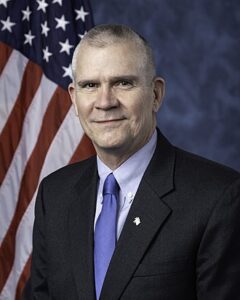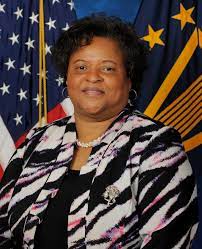Agency Officials Adamantly Denied That Is a Problem
WASHINGTON, DC — VA spends more than $3 billion annually on management consulting contracts, relying on those contractors to help run nearly every facet of its operation in VHA and VBA. While the department has assured Congress that these companies have no conflicts of interest, some legislators have said they are finding that difficult to believe.
In March, the Wall Street Journal reported that McKinsey & Company, a consultant that VA has employed since 2009, had also been employed by Purdue, Endo, and Mallinckrodt to help those companies sell opioids to federal agencies and other purchasers. McKinsey has been accused of being complicit in the creation of the opioid crisis. The company has maintained its innocence and said that it cut ties with opioid manufacturers in 2019.
That instance is one of the reasons why, when VA Secretary Denis McDonough told legislators in a letter May 31 that no conflicts of interest exist among VA contractors, some said they had trouble taking him at his word.
“That’s just absurd,” Rep. Matt Rosendale (R-MT), said of McDonough’s letter at a joint hearing of the House VA Subcommittees on Oversight and Technology Modernization. “Three billion and nothing to worry about, nothing to see here.”
“The ranks of government contractors have never been known to be filled with saints,” declared Rosendale, who chairs the subcommittees. “Consulting and professional services contracts are the most fraught with conflict of interest.”
Process in Place
VA officials in charge of vetting contractors stuck to their guns, assuring the subcommittees that there’s a process in place to weed out conflicts of interest before companies are signed on.
“Federal acquisitions regulations require [companies] to certify any potential conflicts of interest,” explained VA Senior Procurement Executive Angela Billups, PhD. “VA offices also look at proposals and determine whether … there is additional information that needs to be considered or if there’s something there that might trigger them to make a different decision.”
Legislators pointed out that VA is essentially taking contractors’ word that they’re operating above board and in the spirit of the regulations.
“That’s what’s required by the regulations,” Billups said.
Asked what happens if VA discovers later that contractors have a conflict of interest, Billups said that there are remedies, including the possibility of VA creating litigation claims against the contractor. However, in the four years she’s held her current position, VA has never needed to do so, she added.
VA officials did admit that it can be a laborious process for contracting officers to make sure there are no organizational conflicts of interest when vetting a company, especially when that company has multiple contracts in different areas of the department. Of the approximately 3,000 contracting officers in VA, only 700 of them are at VA’s central office and so have difficulty seeing all of the contracts a contractor might have with VA.
“A lot of this is a manual data crawl that requires us flipping through pages for why there’s an organizational conflict of interest or mitigation,” explained VA Deputy Executive Director Phillip Christy.
VA is currently looking at ways to automate that process, he said.
Legislators were also worried about the perception of conflicts, specifically in VA’s Office of Information Technology, which Kurt DelBene has overseen as chief information officer since 2021. Prior to coming to VA, DelBene was an executive at Microsoft.
While DelBene has recused himself from all dealings with his former company, legislators pressed VA officials on whether he had any sway in the $1.6 billion licensing agreement VA signed with Microsoft in April 2022.
“Absolutely, positively no,” Billups said.
Rosendale attempted to find at least a perception of a conflict of interest with DelBene and Microsoft but was thwarted by Deputy CIO for Strategic Sourcing Luwanda Jones, whose office coordinates meetings with potential vendors. Asked how many times DelBene has met with Microsoft, she said, “Absolutely zero to my knowledge. It’s my responsibility that he not meet with them, and I’m pretty adamant about that.”
In fact, she said, not only do VA officials receive training on how to interact with vendors, OIT senior leaders never meet with vendors alone.
“I personally attend most of the vendor session meetings,” Jones said. “If I don’t, one of my other executives does.”
Despite finding no evidence that VA’s assurances are false, Rosendale still found the claims hard to believe.
“The attitude of VA toward documenting ethical matters seems to be extremely hands-off,” he said. “There seems to be no process to track organizational conflicts of interest or recusals. They’ve assured us everything is fine, but there’s very little to show us that is true. VA can’t provide transparency if we don’t have any documentation or record to look into.”



